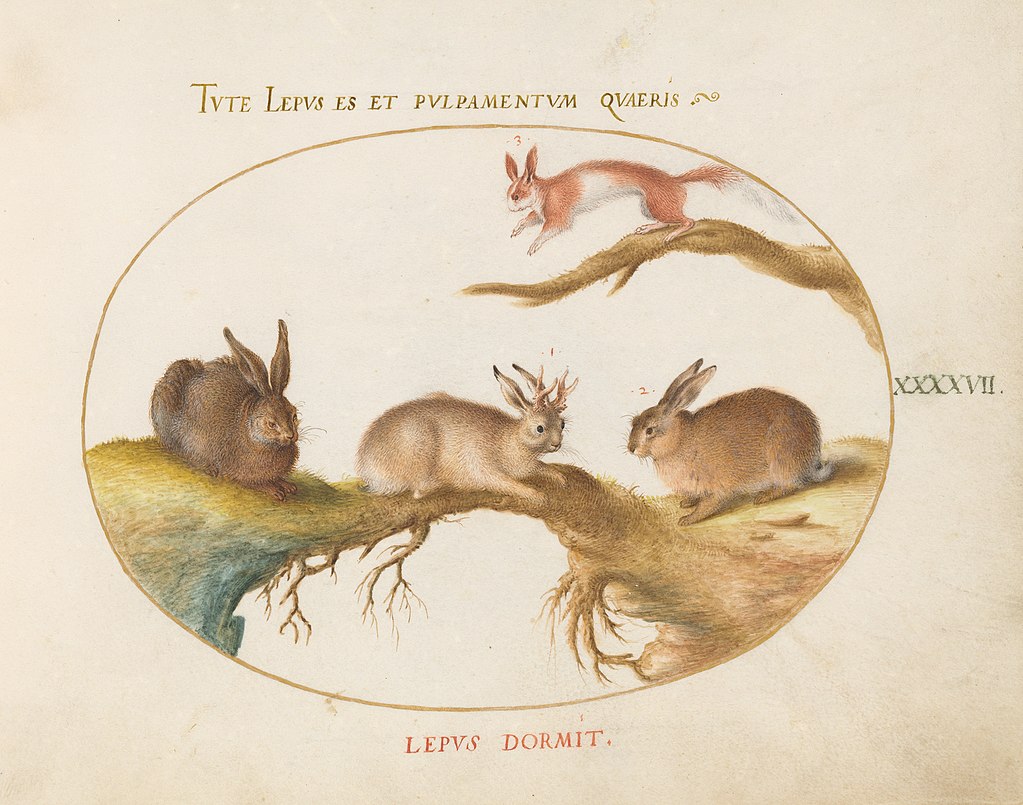Wild rabbits in Colorado have been discovered with concerning horn-like growths protruding from their heads, startling people on social media.
Thankfully the condition poses no threat to humans and other animals, with recent sightings also having been reported in Minnesota and Nebraska.
The bunnies’ ‘horns’ are a symptom of the Shope papilloma virus, which spreads through the bites of mosquitoes, ticks, and fleas. This means it’s more common in the warmer months, explaining the current increase in observations.
Related: Wild Pigs Turn ‘Neon Blue’ in California, Triggering Warnings
The virus itself was discovered in 1933 by Richard Shope, though it’s likely its bizarre effects have been inspiring accounts of the mythical jackalope for centuries.
“It’s been around forever, it’s a virus, it’s nothing new and it’s being sensationalized because people are seeing what it can do to wild rabbits,” veterinarian Laurie Hess told Jackson Walker at Cowboy State Daily.
“These rabbits look freakish but usually these [growths] are benign things, sometimes they will kind of fall off and go away.”
The growths – called papillomas – are wart-like growths on the rabbit’s skin made of keratin; a protein also found in our hair and nails.
Just as the related human papillomavirus can cause cancer in people, the Shope papilloma can develop into cancerous growths in rabbits. The disease is more likely to become malignant in domestic rabbits.
Usually, the animals recover from the virus and the ‘horns’ fall off. Growths that interfere with the animal’s senses, like near its eyes or mouth, can cause potentially deadly problems, however, like preventing the animal from eating.

Studying the Shope papilloma virus in rabbits revealed the connection between viruses and cancer. This eventually led to the development of the HPV vaccine, which has been highly successful in reducing cervical and oral cancer in humans.


